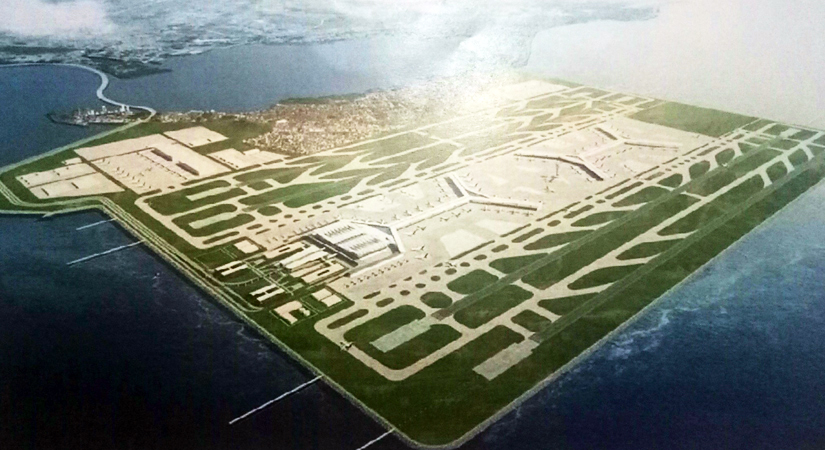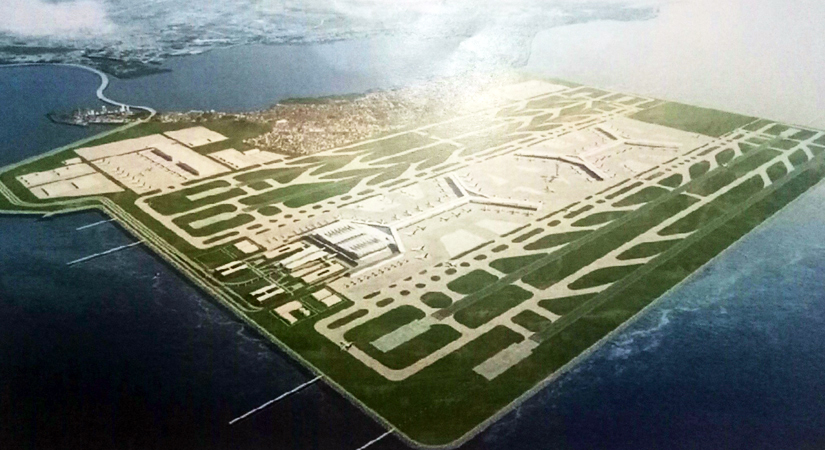
By Arjay L. Balinbin, Senior Reporter
THE Cavite government sees “signs” that it will finally seal a joint venture (JV) agreement by Nov. 24 with MacroAsia Corp. and its partner China Communications Construction Co. Ltd. (CCCC) for the $10-billion Sangley Point International Airport project.
“November 24 is the last day for the partners to enter into a joint venture agreement. We have given them an extendable deadline, so we will know then. But all signs point that they will sign the agreement before that,” Cavite Gov. Juanito Victor “Jonvic” C. Remulla told BusinessWorld in a recent phone interview.
Mr. Remulla stressed he is optimistic that the airport project will push through.
Jesse R. Grepo, Cavite’s public-private partnership selection committee legal officer, said on Sept. 24 that the Lucio C. Tan-led MacroAsia and its partner CCCC were given another 90 days to complete their post-qualification requirements for the airport project, after they missed the Sept. 9 deadline.
“The consortium was able to make partial submission of documents as required by Notice of Award. However, considering the continuing adverse impact of Covid-19 (coronavirus disease 2019) and in the exigency of service, the request for extension of 90 days immediately after air travel resumes between China and the Philippines to comply with all the conditions of the Notice of Award is granted,” Mr. Grepo said in a mobile phone message.
He said the extension was granted because of the “firm commitment” of the consortium to fully comply with the requirements on or before the new deadline.
MacroAsia said in a recent disclosure to the stock exchange that among the documents it had already submitted was the “newly and fully authenticated copy” of the joint venture proposal.
The post-qualification documents were supposed to be completed and submitted 60 days after the group received the notice of award in February.
Cavite had initially given the consortium until June to process and submit the documents before a joint venture development agreement could be signed.
The groundbreaking for the first phase of the airport project was initially expected to take place in the second quarter of the year.
The first phase of the project, which will cost $4 billion, includes the construction of the Sangley connector road and a bridge to connect the Kawit segment of the Manila-Cavite Expressway to the airport.
Phase 1 also involves the construction of the airport’s first runway.
The airport is rated at 25 million passengers yearly, and is intended to help decongest the Ninoy Aquino International Airport.
It is expected to be fully operational by 2023, with partial operations to start a year earlier. The fourth runway will be opened after six years.
The same consortium will work on the other two phases of the airport project, but there may be contract renegotiations, according to the Cavite government.
The second phase, which will cost about $6 billion, involves the construction of two more runways, giving the airport an annual capacity of 75 million passengers.
The last phase is the expansion to four runways, bringing capacity to 130 million passengers.
MacroAsia incurred losses of P269.44 million in the third quarter, a reversal of its profits a year ago, as the group’s core business segments “continue to be impacted by the downturn in air travel due to COVID-19-related quarantine and airport restrictions from March 2020 onwards,” the company said in a recent stock exchange disclosure.
In the same quarter last year, MacroAsia recorded an attributable net income of P300.05 million.
